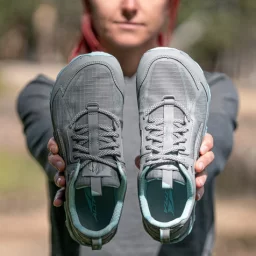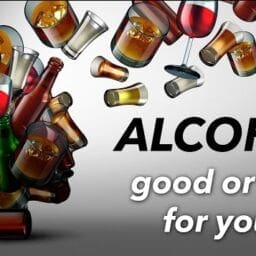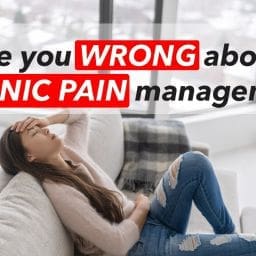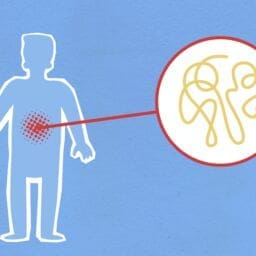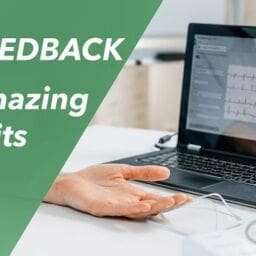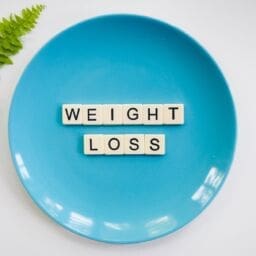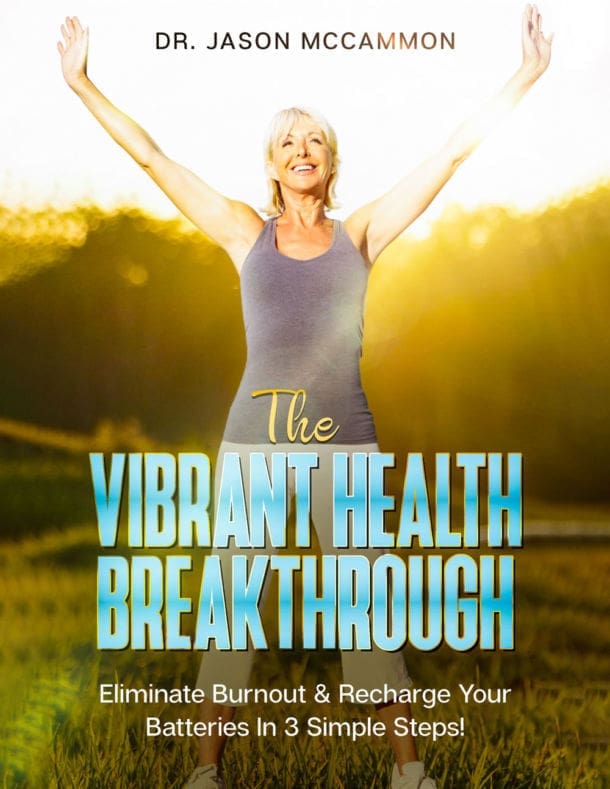
Heal from depression
A naturopathic doctor discusses his battle with depression. There are many natural ways, using natural medicine, to heal depression.
Depression is at epidemic levels but there are ways you can reduce chronic or cyclical depression. I suffered nearly my entire adult life up to a few years ago with chronic depression. I have learned several key techniques that helped heal my chronic depression and I’ve seen lots of clients greatly improve their mental health with these as well. I’m living proof you do not have to suffer but it takes some honest inward assessment of what’s going on inside.
This is a topic near and dear to my heart, something I’ve struggled with for a long time, but I finally found remission from depression. I’m excited to share that with you today.
Just a few years ago, I had a breakthrough with some work I did, internally, that opened up a whole new person. It was incredible. I’m living proof you don’t have to suffer with this. There are things you can do. And even alongside working with a therapist or other techniques, this can really help you if not completely put years into remission potentially.
First, if you are feeling suicidal, if you’re planning to hurt yourself, please dial 988 to get help. This is not meant to offer that type of acute help.
Second, this is going to be my personal battle with depression and talking about what worked for me and my clients. I’m not a therapist. But, again, I think there’s so many different tools that we have to learn from each other even outside of professional therapy. Many of the techniques I used, which I will share below, are not from a licensed therapist but they work very well.
Another clarification is that we’re really discussing more mild to moderate chronic depression. This is not clinical depression, which is extremely serious. This is not depression with suicidal ideation or other mental illness that we’re going to discuss today.
Keep in mind, too, depression is really an outcome of many different processes or layers. It’s not just one thing that we can just point to one item, even one medication or one technique and say, “Oh, that was it.” It’s not something like the cold or flu that’s simply just a virus going through our body. There’s many, many layers to this. If we work on each layer of our internal ecosystem it actually can really improve the risk factors in depression and reduce the onset of it and the severity of it.
Contributing factors.
I don’t want to say causes because that’s more of a medical thing. Childhood trauma. Really important to process through that if you haven’t already. Going through a divorce or break-up. Chronic pain somewhere in your body. High stress careers where everybody is trying to get the best from you every day.
These all can drain you such that you don’t have enough energy, mental energy, left to maintain your own life and your family. Domestic environment is really big, we’ll talk more about that later, but who you are around, the energy you’re around is really important.
Nutrient deficiency is one of the top, which often can be more easily corrected. Studies are continuing to find that more and more and more nutrient deficiencies of our body and our brain especially. This means our neurotransmitters can’t do their job, they can’t bind to the right receptor site, serotonin and dopamine, all those things are required to work together. But they can’t do that unless they have the raw material.
Gut health, I continue to talk about this in almost everything I do. I’m telling you, “gut health, gut health, gut health.” You’ve got to work on that. It doesn’t have to be perfect, but you have to improve it. If you’re having indigestion, food sensitivities, leaky gut, things like that, it’s going to raise these markers in your blood and these chemicals, these inflammatory chemicals are going to affect your brain chemistry. There’s a lot of research coming out on that. Checkout Dr. Rhonda Patrick’s work on the gut, and she relates this to a lot of latest research on the brain and its effects from being directly impacted by gut health there.
And then systemic inflammation is big. If your entire body is inflamed, what does that mean? It means your cells can’t communicate. We could have acidic cellular pH, again, nutrient deficiencies, could have insulin resistance, just a lot of dysfunctions going on throughout your own body, your brain is going to be a reflection of what’s going on in your entire body.
A low omega-3, high omega-6 diet. This is really underrated. Omega-3s are a huge percentage of the brain tissue in the fat that makes up the brain. You’ve got to have more omega-3s in the diet. If you’re vegan there are algae forms out there. I would be careful about your source, of course, being sure it’s really quality, tested for heavy metals and toxins. There are some great brands out there that we could talk about.
And high omega-6s. Omega-6s, they’re considered an essential fat, but we can get them everywhere. You don’t have to add them to your diet. Some people are misinformed here. Omega-6s are going to be almost everywhere including your vegetable oils like soybean oil, safflower, sunflower, vegetable oil, canola, things like that. We want to minimize those just because we can get 6s almost everywhere. The key here is to reduce the omega 6 consumption while raising omega 3’s intake, as this helps squelch inflammation, especially in the brain.
Mindset.
Mindset is your default programming. If you are someone who automatically gets down and disappointed with each negative event, situations of adversity, or when things don’t go your way, then mindset is important to work on. It does not brush away disappointment or should make you act like something didn’t happen. Rather, it’s your emotional intelligence to know how to look at the situation for what it is. For most of us, we take adversity personally and let it rock us to our core. But in reality, there is always going to be adversity and success alike. The key is realizing either way – good or bad – it’s just one moment in time. That one event will not determine the direction of our life, unless we let it. Thus, being able to take emotion out of most non-life threatening events is a big key.
For example, let’s say you got let go from your job. You might have liked your job or was it just paying the bills? Either way, it’s probably not a fun day to say the least. You should express your disappointment and even anger with being treated like that, especially if you felt you did your best work. At the same time, if this was not your dream job, you are now free to pursue other opportunities that will most likely be more fulfilling. It’s important to express the emotions but then get objective and look at the whole field. Oftentimes you will look back and actually be grateful for something to fall through because it led to a better situation. So, let’s work on your emotional intelligence as this can go a long way to working through depression.
Medication for depression.
Many, and I will venture to say most, medication prescribed for depression are just as effective as placebo. This means, just the fact that you know you are taking a drug to feel less depressed is just as effective as if you took a fake drug (sugar pill). This is published science; this is not theory. There are published studies, many of them showing that oftentimes medications as a physician is prescribing them and patients taking them, just the act of them being listened to and being prescribed something to put in their body has the effect of helping them feel better mentally.
While I’m not advocating or talking about getting off drugs, please don’t do that without the supervision of a physician or a qualified health care professional, I’m just saying let’s educate and understand that when the brain thinks we’re getting healthier, you actually can get healthier, you don’t always “need” that medication.
Further, published studies show many of these medications often increase suicidal thoughts, and sometimes make depression sometimes worse. The take home message here is that medication is not necessarily a good answer or the only answer to depression. There is so much more that can be done at low or no cost and drug free.
Auditing your life.
Depression has many, many layers to it, let’s talk about a lot of those layers and how to unpack those and what we can do about them. And, yes, I have done this personally, I’ve done this with clients. It is really, really effective. You must do this next section first before what we’re going to talk about later.
Let’s talk about where we are and then why we are there, meaning you’re in your situation in life, whether it be in career, domestically, whatever’s going on with you, you’re there for a reason. You got to really honestly just accept that and say, “Okay, these things are happening to me because of choices I made.” And it’s not about being judgmental of yourself or hurting yourself, but you have to realize, “If I made decisions to get here, I can make decisions to get myself out of here into a better place.” It’s the first step of recognizing this isn’t just happening to me out of happenstance and just random decisions you made led to where you’re at. The reverse is true, too, right? We can make decisions and improve our life and our health.
Career.
Let’s talk about your career. There’s a big difference between just getting a paycheck, like you’re just working somewhere just for the money. That’s not very fulfilling. You’re not going to feel great about going in there everyday. Remember, almost a third of our time spent on planet earth as a productive adult is spent at work. What you do and where you work matters.
And then think about that versus a vocation. Vocation is something where you have a skill and you generally look forward to going to work. You can probably do it for a number of years, and that’s great, and that’s where we want to be at least at a minimum.
And then a passion is ideal. A passion is you where you can’t wait to get to work the next day. You can’t wait to work with that next person or get to that next project. That’s a passion. If we can get paid for that, you’re going to really have a lot of satisfaction with your work life. So, think about those three things – paycheck versus vocation versus passion. And obviously, we’re always working toward passion when we can. It can take years, so we have to be patient.
This was big for me. I started in the engineering world but it was not fulfilling in the least. I knew without 6 months that my days were numbered. I lasted 6 years, but I was building a side gig (vocation and turned into a passion) the last 3 years at my engineering job. I was patient and it paid off. But I was not afraid to look at my options as I did not want to be miserable for the next 40 years.
Home life.
Having a supportive spouse or a family around you is really, really important. If you don’t have that, it’s something to work toward. And then we’ve got family as far as dealing with toxic people, you got to be careful. I know we can’t just leave family, they’re part of our family structure. If you’re married into a family or you have relatives, I get it. But we need to minimize our time with toxic people.
And then socially we have a lot more latitude. We don’t have to be around people socially unless we choose to. If they’re toxic, if they’re cancerous, we’ve got to stay away from these people. And you’ll notice if you really audit your life and really stop and think about it and look at it from the outside in, really think about that for a while. Take some time to go through this, you’ll find, “Am I really hanging out with people that have my best interests at heart? Do they really love me for me or are they trying to get something out of me?” Do they sabotage me when I try to go build something or are they building me up? Stop and ask yourself these questions. Audit your circle of influence, regardless of how long you have known them.
Do you have a narcissist or those with these tendencies in your life? A true narcissist is someone who isn’t just self-centered, but they manipulate you, like gaslighting, they make you believe that you’re always wrong or you’re always way off base. And they can’t possibly take any blame or responsibility for any negative situation. If you’re dealing with a true narcissist or someone who displays these tendencies, you’ve got to move away from that person. I mean, honestly, I don’t care if they’re your spouse, you’ve got to either work on counseling, you’ve got to work on healing that somehow, or you’ve got to move away from that. Maybe even separate until they get some help. If they are not willing to get help, then you must move on. And no matter how much internal work you do, you’re going to have trouble trying to overcome all that negativity from a narcissistic person.
I work with a lot of clients that are stuck in those situations, and again, you’re in that situation for a reason because of the decisions you made, right? We can look at decisions to get you out of there.
Hobbies.
Hobbies are big. I think they’ve fallen by the wayside a little bit because people are either at work, running around doing errands, maybe kid activities, or stuck on their phone and we kind of lost this called a pastime or hobby. That really helps let negative energy sink out of our body, distracts your mind from some problems, and it just makes you happy frankly. We just need to do things that make us happy. Let’s look at a hobby. What have you put off doing that’s relatively simple that you can turn to in order to feel a little joy in your life? The traditional hobbies are stuff like crocheting, sketching, water color, pottery, writing, reading; maybe getting outdoors like hunting, fishing, or hiking.
Self-care.
Let’s say you are not big into an official hobby. Then create some self-care time. Being on your phone or on a device or watching TV, okay I guess it’s self-care time, but could it be a little bit more effective. Try meditation, mindfulness, stretching, a fitness routine, deep breathing, a walk out in nature, a nap, anything that helps build you back up. Ask yourself where you can steal a meager 10 minutes where you can sneak away. Work will still be there when you get back. I guarantee you won’t miss anything major. In fact, what the research shows is that taking breaks makes you MORE productive. Yes, taking time away from work or home life, even though you may see it as subtracting time from what you do, is a net gain. Why? Because you are giving your brain a break. You are lowering stress hormones. And all this means you are more refreshed and can jump back into whatever task with more vigor. This renewed vigor means you can get more done and be more productive. Self-care time is all about cooling off the engines, especially your brain and finding some momentary peace.
In the next section we’re going to talk about how to pull this all together. Solving depression is not a one step miracle. You must do the work to rebuild your brain’s network or neurons and how neurotransmitters work. The following is how you re-write the software between your ears. No drug or therapist can do this, by the way. This is all you.
This book literally changed my life and the life of most of my clients: The Four Agreements.
The book is called The Four Agreements by Don Miguel Ruiz. Incredible. It’s helped me tremendously. I’ve recited these every day for like the last almost about three years, I kid you not. It was very foreign at first but I just kept reciting them, kept working through it, I became much more self-aware of when these situations would happen to me, and I just kept falling back on them and saying, “Hey, am I really living by these principles?” And it really helped me unlock things. It’s been phenomenal. So, let’s talk about them briefly, introduce them, and then we’ll move on from there.
Impeccable with your word.
This is both internal and external. Most people will speak more negatively about themselves than they do other people. Obviously, we want to be polite and respectful at least to other folks around us, of course, but especially remember, you have to be impeccable with your word to yourself. If you’re putting yourself down, if you’re like, “Uh, man, I suck at this,” or, “I can never get that right. I’ve always sucked at XYZ,” or, “I just have never been good at that.” If you’re always negative and in your own head, you are the most important person on your team, so your self-talk (internal) must improve before your external situation improves.
Words are the most dangerous things there are, because words can heal, they can create peace, but they can also start wars. Be careful of what you think and say about yourself first, then reflect that respect to the outside world.
Don’t take things personally.
Don’t take things personally was my number one of these four. It may not be for you. But, wow, just when people would say things or people would get maybe a little snippety with me, a situation wouldn’t go my way, whatever it was, I would take it so personally as if that person or that situation was meant to hurt me or harm me. And when I read this book and it hit me HARD and I realized, “Wait a minute, that person is stuck in their own reality. They’ve got their own situation they’re dealing with. They weren’t actually personally trying to attack me or hurt me. It was just my perspective on the situation.” And when you start releasing and letting go of taking it personally, it’s incredible what’s going to happen in your life and what can be unlocked. It’s incredible. Does bad stuff still happen and are people still mean sometimes? Yes, of course. But again, it’s all in your mindset and how you take that.
Don’t make assumptions.
We may not realize it but we make assumptions all the time, nearly hourly, which constructs a sort of false narrative about a person or situation. For example, if you are waiting for a first date to show up and they are late, many things might go through your head. Things like maybe they took another glance at my profile picture online and decided I wasn’t cute enough. Or maybe they are a player and dating so many people they forgot about me. Or maybe they already saw me sitting here and were appalled so they left. These are things you are 100% clueless about and are literally fabricating in your head. Where does this come from typically? Insecurities about ourselves. That is a whole other topic but suffice to say that does make you feel like crap. It tends to depress you, as it’s all negativity swirling around your head. The truth is – if you step back and look at it objectively – you have no idea who they are late. They could have had car trouble or they could have had an emergency at work and were too blind-sided to text you. But even that is fabricated in my mind. The truth is, we don’t know why and may never know. It’s pointless to extrapolate and make assumptions. It’s best to let it go. Redirect your efforts into something else. Yes, this is not easy at first but I cannot tell you how many times I made a bunch of assumptions, only to be totally wrong about them, usually 95% of the time. In fact, my assumptions made the situation often much worse than if I had just not worried about it. This is because the fake narrative I conjured up in my head, created a bias about that person or situation. So then when I confronted that person, I had an attitude which impacted the outcome of the relationship.
We don’t know what a person thinks about what you said or did or what you didn’t say or do, so you can’t worry about it. You must work to stop worrying and putting energy into things you cannot control. What someone thinks about you is 100% out of your control. All you can control is what you think and do.
And if you need to, if this person or situation is important to you, then seek to understand. Politely go ask them about their thoughts on a subject and you’ll know. I found this creates a lot of mental peace for me and many clients.
Always do your best.
Your best, depending on the situation, is going to look different. So, if you’re fighting a cold or flu, if you don’t feel well, you’re fighting a serious illness, your best is going to look different than if you’re in tip top shape and you’re running five miles a day and you just feel amazing. So, remember that. So, oftentimes, our best doesn’t always look the same. You have to do the best you can for the given situation, and move on from there. The key is that our 100% best effort cannot always happen. Thus, it’s not fair to judge yourself – or anyone else for that matter – if you are holding yourself to an impossible standard. Meeting work deadlines while caring for your aging parents, raising two kids, and maintaining a marriage, is very different than if you were single and no one depended on you. So, give yourself some grace, a little latitude, and ease up on yourself. This one speaks to all those folks who beat themselves up for feeling like they are a constant failure or can never get things right. Your expectations are way above where they should be, based on what you are going through. On the flip side, when you feel like you have more energy and the wind at your back, go hard and push yourself to be sure you do not like it with regret.
This is just a tiny introduction to the Four Agreements which tremendously helped me change my life. But I really want you to work on understanding some of the contributing factors to depression. Audi your life; you must look at your environment around you and your ecosystem. And then take action by actually using things like the Four Agreements. These mantras and these little sayings that you can use as little principles to help you redirect or reframe things. Let’s take action on these three sections and go from there.
Free E-Book.
I wrote an e-book, called Vibrant Health Breakthrough. You can find that on this website. Check that out today and don’t worry it’s completely free. It’s 13 pages of pure content that can help improve your life!
Be Well and God bless! 😉
~Dr Jason

